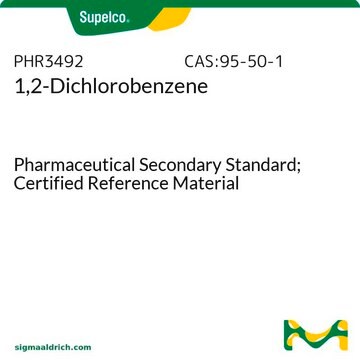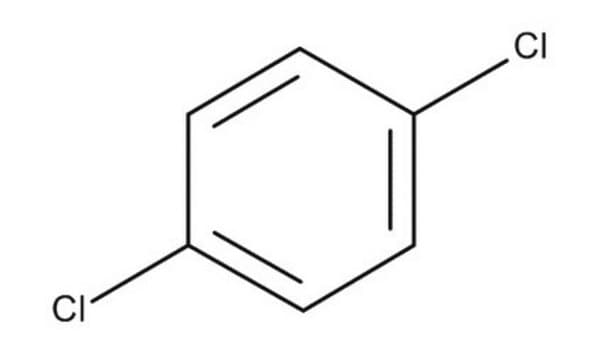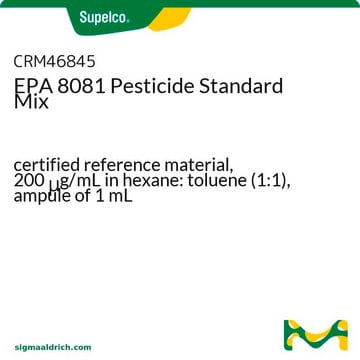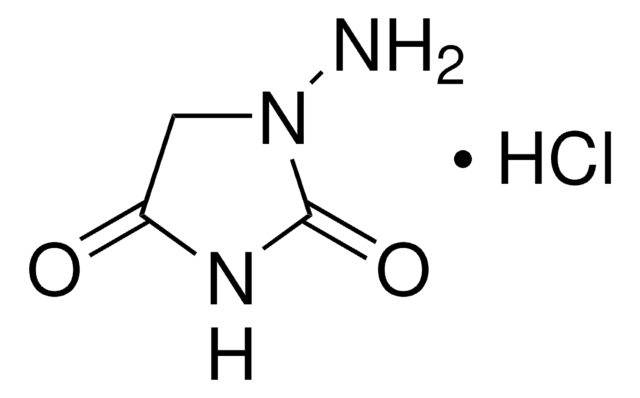40025
1,4-Dichlorobenzene solution
certified reference material, 5000 μg/mL in methanol
About This Item
Produits recommandés
Qualité
certified reference material
TraceCERT®
Gamme de produits
TraceCERT®
CofA (certificat d'analyse)
current certificate can be downloaded
Conditionnement
ampule of 1 mL
Concentration
5000 μg/mL in methanol
Technique(s)
HPLC: suitable
gas chromatography (GC): suitable
Application(s)
agriculture
cleaning products
cosmetics
environmental
food and beverages
personal care
Format
single component solution
Température de stockage
2-8°C
InChI
1S/C6H4Cl2/c7-5-1-2-6(8)4-3-5/h1-4H
Clé InChI
OCJBOOLMMGQPQU-UHFFFAOYSA-N
Vous recherchez des produits similaires ? Visite Guide de comparaison des produits
Description générale
Application
Autres remarques
Informations légales
Mention d'avertissement
Danger
Mentions de danger
Classification des risques
Acute Tox. 3 Dermal - Acute Tox. 3 Inhalation - Acute Tox. 3 Oral - Aquatic Chronic 3 - Flam. Liq. 2 - STOT SE 1
Organes cibles
Eyes
Code de la classe de stockage
3 - Flammable liquids
Classe de danger pour l'eau (WGK)
WGK 1
Point d'éclair (°F)
51.8 °F - closed cup
Point d'éclair (°C)
11 °C - closed cup
Équipement de protection individuelle
Eyeshields, Faceshields, Gloves
Faites votre choix parmi les versions les plus récentes :
Déjà en possession de ce produit ?
Retrouvez la documentation relative aux produits que vous avez récemment achetés dans la Bibliothèque de documents.
Notre équipe de scientifiques dispose d'une expérience dans tous les secteurs de la recherche, notamment en sciences de la vie, science des matériaux, synthèse chimique, chromatographie, analyse et dans de nombreux autres domaines..
Contacter notre Service technique









